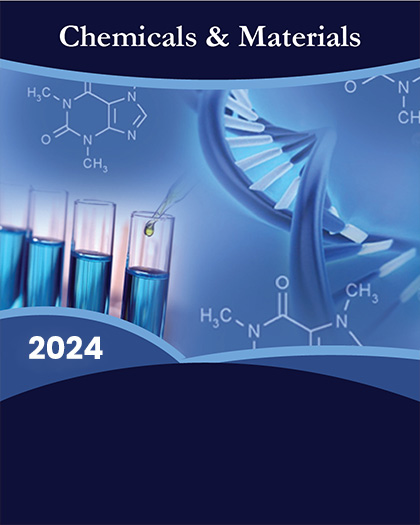
Global Sustainable Pharmaceutical Packaging Market is valued at approximately USD 69.13 billion in 2022 and is anticipated to grow with a healthy growth rate of more than 15.03% during the forecast period 2023-2030. Sustainable pharmaceutical packaging involves adopting environmentally conscious practices throughout the packaging lifecycle of pharmaceutical products. This approach encompasses selecting eco-friendly materials, minimizing packaging volume and weight, prioritizing recyclability and biodegradability, and implementing energy-efficient manufacturing processes. Innovations in design and technologies, adherence to regulations, consumer education, responsible supply chain practices, and life cycle assessments contribute to creating packaging solutions that balance product protection with reduced environmental impact. The aim is to foster a circular economy, minimize waste, and promote social responsibility within the pharmaceutical industry. The Sustainable Pharmaceutical Packaging Market is expanding because of factors such as the increase in the number of government initiatives for sustainable packaging, focus on downsizing packaging, along with increasing global consciousness about environmental issues and a growing commitment to sustainability.
In addition, the high growth of the generics and biopharmaceuticals sector is acting as a catalyzing factor for market growth across the globe. Specialized packaging is frequently needed for biopharmaceuticals to preserve product integrity. The patient-centric approach of the biopharmaceutical industry follows sustainable packaging choices that offer characteristics like temperature control and protection against external elements. According to Statista, in 2022, the biopharmaceuticals sector was estimated to account for USD 403.1 billion across the globe, which is projected to constantly rise and is estimated to reach USD 974.5 billion by 2030. Governments may provide incentives or support for sustainable practices in the pharmaceutical industry, encouraging companies in the generics and biopharmaceutical sectors to invest in eco-friendly packaging solutions. Thus, these aforementioned factors are propelling the growth of the Sustainable Pharmaceutical Packaging Market over the estimated period. Moreover, the surge in demand for primary pharmaceutical packaging, as well as the growing R&D activities for recyclable and eco-friendly materials present various lucrative opportunities over the forecast years. However, the poor infrastructure facilities for recycling and the high packaging costs are challenging the market growth throughout the forecast period of 2023-2030.
The key regions considered for the Global Sustainable Pharmaceutical Packaging Market study include Asia Pacific, North America, Europe, Latin America, and Middle East & Africa. North America dominated the market in 2022 owing to the shift in consumer preferences toward recyclable and eco-friendly materials, as well as favorable governmental policies and regulations supporting sustainable packaging practices and environmental conservation. Whereas, Asia Pacific is expected to grow at the highest CAGR over the forecast years. The growing emphasis on environmental protection, coupled with the robust expansion of the pharmaceutical industry are significantly propelling the market demand across the region. The region experiences rapid growth in the pharmaceutical sector driven by a sizable population and escalating healthcare expenditure. This has generated an increased need for sustainable packaging solutions. Companies in the region are channelling substantial investments into research and development to pioneer novel sustainable packaging options, catering to the rising demand from both consumers and healthcare providers.
Major market players included in this report are:
Schott AG
Amcor PLC
AptarGroup Inc.
West Pharmaceutical Services, Inc.
Berry Global Group, Inc.
Gerresheimer AG
Catalent,Inc
WestRock
Stevanato Group
Nipro Corporation
Recent Developments in the Market:
In September 2022, Aptar Pharma introduced an innovative dispensing solution characterized by a mono-material composition, ensuring full recyclability when combined with a PE or PET bottle. This solution is versatile, accommodating a range of viscosities, and offers customization with two dosage options and two neck-size alternatives. Its unique three-part design is available in various colors, adding to its adaptability and aesthetic appeal.
In November 2022, Aptar Pharma announced the company's partnership with TFF Pharmaceuticals, focusing on the joint development and testing of dry powder vaccines. The initiative leverages TFF Pharmaceutical's Thin Film Freezing technology in combination with Aptar Pharma's proprietary intranasal Unidose (UDS) powder nasal spray system for vaccine administration.
In September 2022, Berry Global Group, Inc. unveiled a partnership with Mars Inc. to introduce their well-received pantry-sized treats in polyethylene terephthalate (PET) jars. These containers have been enhanced by incorporating 15% recycled plastic content, specifically Post-Consumer Resin (PCR).
Global Sustainable Pharmaceutical Packaging Market Report Scope:
Historical Data - 2020 - 2021
Base Year for Estimation - 2022
Forecast period - 2023-2030
Report Coverage - Revenue forecast, Company Ranking, Competitive Landscape, Growth factors, and Trends
Segments Covered - Material, Sustainability, Region
Regional Scope - North America; Europe; Asia Pacific; Latin America; Middle East & Africa
Customization Scope - Free report customization (equivalent up to 8 analyst's working hours) with purchase. Addition or alteration to country, regional & segment scope*
The objective of the study is to define market sizes of different segments & countries in recent years and to forecast the values to the coming years. The report is designed to incorporate both qualitative and quantitative aspects of the industry within countries involved in the study.
The report also caters detailed information about the crucial aspects such as driving factors & challenges which will define the future growth of the market. Additionally, it also incorporates potential opportunities in micro markets for stakeholders to invest along with the detailed analysis of competitive landscape and product offerings of key players. The detailed segments and sub-segment of the market are explained below:
By Material:
Plastic
Paper and cardboard
Glass
Metal
By Sustainability:
Recyclable
Reusable
Biodegradable
By Region:
North America
U.S.
Canada
Europe
UK
Germany
France
Spain
Italy
ROE
Asia Pacific
China
India
Japan
Australia
South Korea
RoAPAC
Latin America
Brazil
Mexico
Middle East & Africa
Saudi Arabia
South Africa
Rest of Middle East & Africa
























